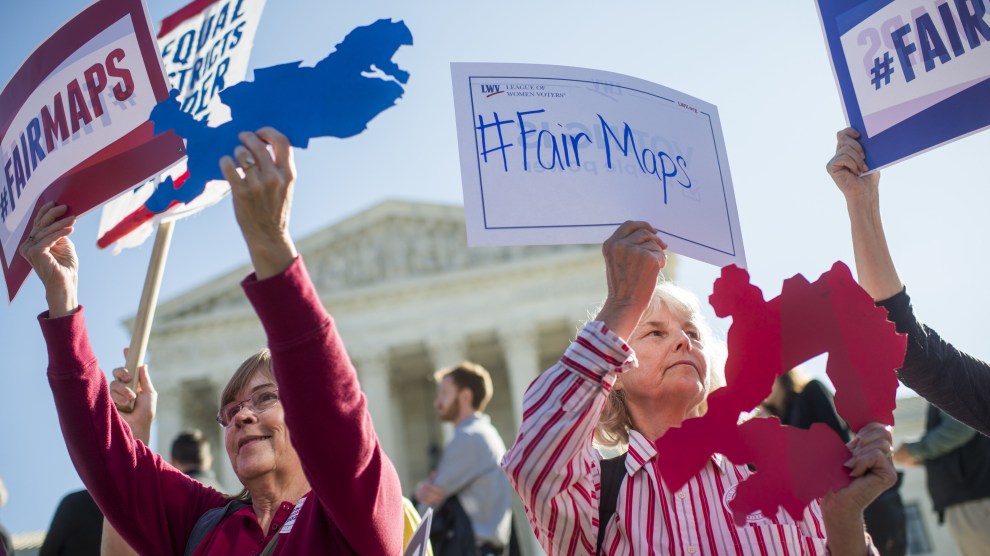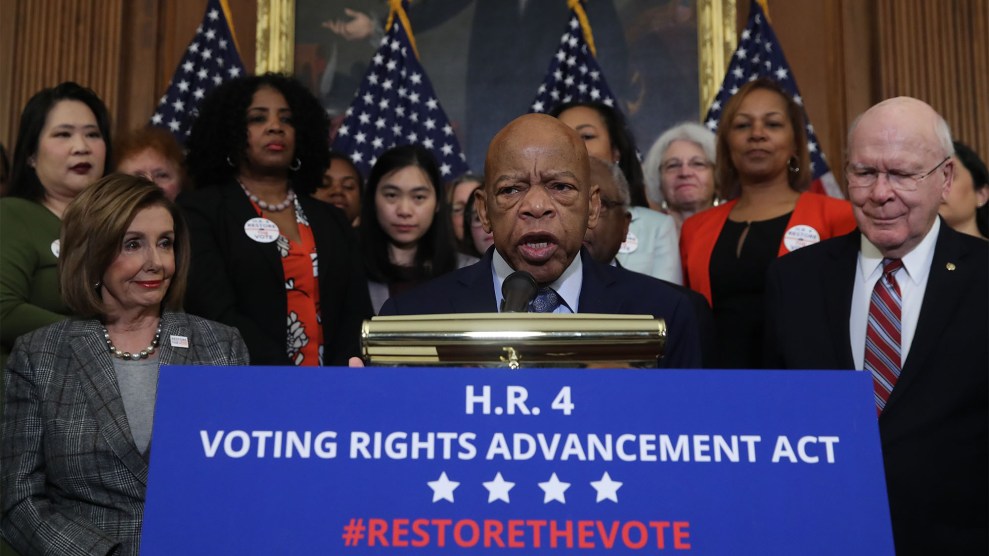
People protest gerrymandering outside the Supreme Court in 2017.Tom Williams/Congressional Quarterly/Newscom/Zuma
A sweeping bill that would prevent partisan gerrymandering, limit money in politics, and expand voting access has broad bipartisan support, according to new polling by Data for Progress and Vote Save America.
The For the People Act passed in the House of Representatives in 2019, but then-Senate Majority Leader Mitch McConnell refused to bring the bill to a vote in the Senate. Now that Democrats control both chambers of Congress, the bill has another shot at becoming law.
It turns out that Democrats aren’t the only ones rooting for the legislation, which is also known as HR1. Out of 1,555 likely voters polled, 17 percent of Republicans said they strongly supported the legislation, and 40 percent said they somewhat supported it.
NEW @DataProgress/@votesaveamerica polling on HR1 finds huge bipartisan support for voting and democracy reforms: pic.twitter.com/zRT73M73Zy
— Jon Favreau (@jonfavs) February 25, 2021
The support appeared even more widespread when pollsters surveyed likely voters on individual aspects of the bill, like preventing foreign influence (86 percent support) and limiting money in politics (85 percent support).
We also tested support for each of the bill’s provisions, which are all wildly popular: pic.twitter.com/e05VUZvtz4
— Jon Favreau (@jonfavs) February 25, 2021
The polling results are in line with what Michael Li, a redistricting expert at the Brennan Center for Justice, told me earlier this week: that the aggressive partisan gerrymandering following the 2010 census convinced many voters from both parties of the need for reforms. “There is this distrust of the political class among everyday Americans, and there’s a sense that one of the things that makes our democracy not work was the fact that the maps were rigged,” he said.
He also said that there was a growing frustration among both Democrats and Republicans with dysfunctional state and federal governments, and with politicians whom voters believe are beholden to special interests. These feelings, pervasive among voters of both parties, translate into a desire for reform.
As for gerrymandering, “people also now not only know what the problem is,” Li said, “they know how to fix it, which is through making the process more independent, through commissions and other reforms.”
HR1 will be on the floor of the House—again—next week.













